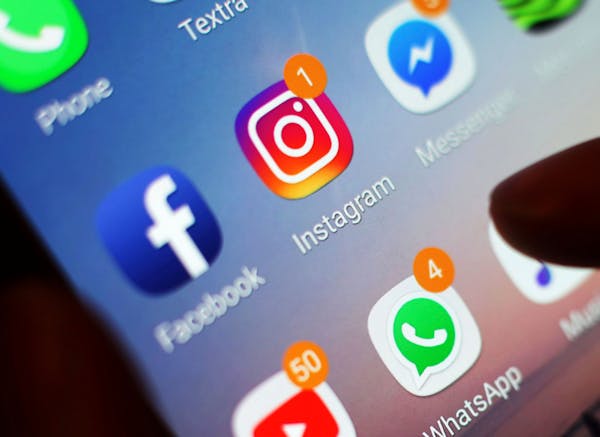The Minneapolis school board will hold off on voting to revise rules for cellphones in the classroom.
The school board was scheduled to vote on updates to the "student personal electronic devices" policy that would allow teachers to set their own expectations, with input from their students.
Board Member Lori Norvell moved to send the policy back to the policy committee and seek more input from teachers, students and parents. That amendment passed unanimously.
"We want to make sure everyone is aware of this," Norvell said. "We'll be working together to make sure every school has a way to give input."
The proposed changes, drafted based on feedback from a student leadership group, struck language about devices needing to be "out of sight, holstered and turned off" unless they were being "used appropriately" during class in middle and high schools.
The proposal also eliminated language stating that having personal electronic devices is a "privilege, not a right" for students. The section outlining consequences for policy violations — which included confiscating a student's device — was also redlined. Instead, under the recently proposed policy, the teacher would be responsible for outlining protocol, and consequences would fall under other student behavior guidelines.
Several board members said they heard from administrators who were not aware of the potential updates until June, after the proposal had already been approved by the policy committee. A handful of parents and teachers spoke against open-ended rules, saying cellphones are distracting in the classroom and dangerously addicting for young people. They said the board should consult teachers and consider a cellphone ban in the classroom.
"I consider this alarming that this was even proposed in August when most teachers are on a much-needed rest and relaxation," said Dan Troccoli, a social studies teacher at Justice Page Middle School.
Board Member Joyner Emerick supported tabling the proposal and gathering more feedback on potential policies but said the proposal was far from a "free-for-all" and still included districtwide restrictions for phone use. For example, using a cellphone to cheat or take photos of students without consent would still be prohibited under the updated policy, Emerick said. And the new changes would have encouraged co-creation of rules only at the high school level, Emerick said, adding that high schoolers should still be consulted on what a new policy should be.
"Can we bring students in that conversation?" Emerick asked. "Can we do it in service of giving our youth a little voice at the [high school] level?"
An equity and diversity impact assessment conducted for the policy revision states that the changes "update language to reflect current practices" and "ensure student-teacher collaboration" in developing classroom rules for devices like cellphones.
The purpose section of the proposed policy states: "Appropriate guided use of these devices may enhance the educational experience and should be aligned with the academic goals of the classroom, social and emotional skills schools integrate into their climates and cultures."
Norvell said she wants teachers to help students learn to use technology responsibly and wants to hear their ideas on how to do so.
"I don't want students to think they weren't heard," Norvell said about the members of the student leadership board who initiated a policy revision. "If they hadn't brought this forward, we wouldn't be having this rich discussion around personal devices."

Want to share info with the Star Tribune? How to do it securely

'Safe recovery sites' would offer syringes, naloxone and more to people using drugs. The plan could be in peril.
New Minnesota GOP leaders seek peace with party's anti-establishment wing

Who is Republican Lisa Demuth, Minnesota's first House speaker of color?

